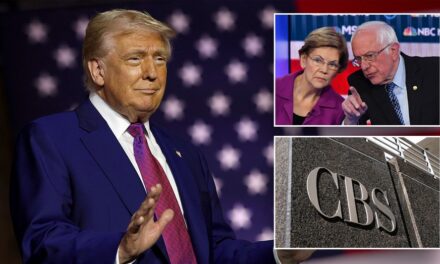In a polarizing episode of a prominent television debate, British television personality Piers Morgan leveled accusations against American journalist Joy Reid, alleging she employed the ‘race card’ during their intense exchange. This clash, which unfolded on the popular cable news network, rapidly ignited discussions about race, media, and the dynamics of contemporary political discourse.
The confrontation arose during a segment where Morgan and Reid were tasked with discussing various pressing issues, including race relations in the United States. Morgan, known for his controversial takes and unfiltered opinions, seized upon an opportunity to challenge Reid’s viewpoints, claiming her arguments were based on identity politics rather than substantive evidence.
As the conversation escalated, Morgan made his statement about Reid playing the ‘race card,’ suggesting that she was leveraging her racial identity to bolster her arguments and dismiss his counterpoints. This assertion resonated with some viewers who felt that such accusations often overshadow legitimate discussions about race issues in America.
Reid, in her characteristic manner, responded with poise, insisting that her commentary arose from lived experiences and historical context. She articulated that discussions surrounding race should not be diminished by claims of playing a ‘race card’ but should instead be embraced as necessary conversations in a diverse society. Reid’s insistence on the importance of understanding racial dynamics left some viewers applauding her steadfast approach to the topic.
Throughout the exchange, Morgan remained steadfast in his criticisms, asserting that Reid’s defense of her stance lacked the objectivity that is essential in such discussions. He pointed to various data points and news stories, aiming to illustrate his perspective that media portrayals of racial issues can often be skewed, leading to a divisive narrative that doesn’t reflect the broader societal reality.
This incident isn’t the first time that issues of race and identity have emerged in public discourse, especially within media circles. Heightened tensions have been evident across the landscape, with public figures frequently facing backlash for their remarks on sensitive topics. Morgan’s accusations and Reid’s vigorous defense highlighted a larger conversation about how race is discussed in America, who gets to speak on these matters, and the power dynamics at play.
Critics of Morgan’s approach argue that labeling someone as playing the ‘race card’ can undermine legitimate claims about racial injustice and inequality, which have become increasingly visible in the United States. They assert that such terminology can create an environment where important discussions about race are squelched, or worse, seen as divisive rather than constructive.
On social media platforms, reactions were swift and varied. Many defended Reid, applauding her efforts to address issues that pervade everyday life and arguing that her experiences shaped her perspectives. Conversely, supporters of Morgan echoed his sentiment, claiming that discussions framed through the lens of race can divert attention from pressing national issues that impact all Americans, irrespective of their racial background.
In the aftermath of the exchange, both figures took to their respective platforms to further articulate their positions. Morgan reiterated his belief that discussions about race sometimes distract from merit-based dialogues, while Reid emphasized the necessity of acknowledging historical injustices that inform current realities. This back-and-forth encapsulates the ongoing struggle in American media to strike a balance between acknowledging race and creating an inclusive narrative.
Moreover, this incident illustrates a broader pattern within media discussions, where debates about race can often devolve into personal attacks rather than fostering mutual understanding. As public figures, both Morgan and Reid hold significant influence over their audiences, and their clash serves as an example of how charged issues are tackled in contemporary media landscapes.
As the show concluded, the exchange left many viewers reflecting on the complexity of race relations in the U.S. and the ways in which media portrayals can shape public perception. With both Morgan and Reid firmly standing their ground, the debate is far from over. It serves not only as a moment of contention but as a catalyst for ongoing conversations about race, identity, and the media’s role in shaping these dialogues.
The incident has also prompted discussions among scholars and political analysts, who are concerned about the implications of such high-profile disagreements. They worry that when influential figures reduce conversations about race to accusations of playing the ‘race card,’ they risk stifling more nuanced and constructive discourse. It reflects a broader concern that polarized views prevail in modern media, potentially alienating audiences who seek genuine understanding of complex issues.
Loyal viewers of both Morgan and Reid tuned in, eager to see how their respective followers would interpret the exchange. This moment echoes in the broader narrative unfolding in the media, where few escape the polarizing effects of race discussions. Both Morgan’s brash style and Reid’s articulate defense make them captivating figures in the realm of political commentary, and their choices in framing issues can sway public opinion significantly.
As this debate continues to evolve, it remains essential for viewers and commentators alike to approach these discussions with an open mind. Listening to varied perspectives can foster a dialogue that goes beyond mere accusations and instead drives towards understanding and reconciliation. Engaging with the complexities of race and identity is crucial, particularly when those conversations are often underscored by longstanding societal tensions.
Ultimately, the exchange between Piers Morgan and Joy Reid exemplifies the challenges that arise in discussing race in America today. It reveals how deeply embedded these issues are in societal discourse and underscores the need for ongoing dialogue that prioritizes nuance and collective understanding. Their clash is but one instance in a much larger tapestry of conversations that must continue to unfold as America grapples with its identity and values.
































